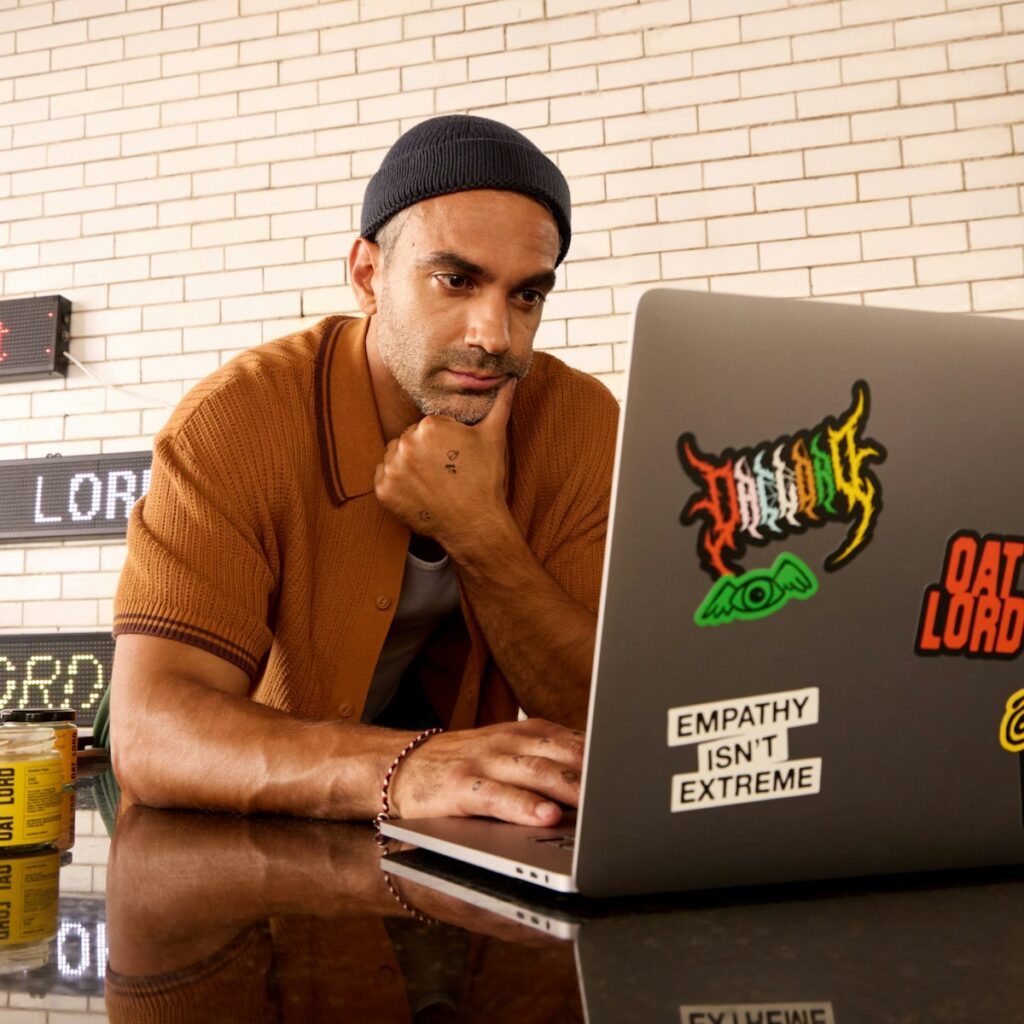
Starting a business is a complicated, challenging journey filled with myriad lessons. The leap comes with uncertainty, risk and a steep learning curve that no guidebook fully prepares you for. We asked industry experts to share the most valuable lessons they learned in their first year of entrepreneurship—and how these experiences have shaped their approach to business.
For first-time entrepreneurs, understanding these hard-earned insights can be the difference between thriving and merely surviving. These are not abstract theories, but practical strategies gleaned from the real-world experiences of founders who navigated the often-turbulent waters of launching a company. Their candid reflections offer a powerful roadmap for overcoming common hurdles and building a resilient enterprise from day one.
From mastering the art of self-promotion to establishing clear operational frameworks, these lessons cover a spectrum of essential skills. They provide direct, actionable advice designed to empower you to make smarter decisions, avoid common pitfalls, and lay a solid foundation for sustainable growth. Let’s delve into these pivotal takeaways that can redefine your entrepreneurial journey.

1. **Market Yourself Relentlessly**When launching a new venture, many entrepreneurs mistakenly believe that exceptional work alone will naturally attract clients. Shivam Singh, Founder of ShivamSEO, recounts a telling experience: “When I launched my company, I believed exceptional work would naturally attract clients. I was mistaken.” He spent six months perfecting his SEO craft, only to watch competitors with inferior skills secure clients simply because they were better at marketing themselves.
This painful realization hit home when a potential client chose a competitor charging double his rates, justifying the decision with, “We see them everywhere, they must be the experts.” This moment served as a game-changer, teaching Shivam that “You have to market yourself relentlessly, even when it feels uncomfortable. Great work doesn’t market itself. Your expertise means nothing if the right people don’t know about it.”
This lesson profoundly reshaped his business approach. Singh now dedicates a substantial 30% of his time to content marketing and relationship building. Every client success story is transformed into valuable content, and LinkedIn has become his primary networking tool. He emphasizes that consistency in marketing, rather than perfection, leads to tangible results.
The strategic shift paid off handsomely, transforming his enterprise “from struggling startup to thriving agency.” Today, a remarkable 70% of his clients discover his services through thought leadership content. The core takeaway is clear: “Your technical skills get you in the game, but your ability to communicate value determines if you win. Make yourself known, valuable, and unforgettable — because your future clients can’t hire you if they don’t know you exist.”
Read more about: Unlock Urban Savings: Your Ultimate Lifehacker’s Guide to Frugal Living in Expensive US Cities

2. **Set Clear Boundaries for Success**For Rachael Mueller, Fractional COO at Hey Rachael Consulting, the first year of entrepreneurship underscored a critical truth: “clear boundaries aren’t just “nice to have”; they’re the difference between building a business you love and one you start to quietly resent and dread.” Her initial approach was to say yes to every request, believing that 24/7 availability was the fastest way to prove her value and propel her business forward.
This all-encompassing commitment, however, led directly to burnout. She found herself “constantly on edge, my creativity tanked, and I started to dread the very work I’d once been so excited about.” The unsustainable pace, compounded by working with her partner, became a “total recipe for disaster,” serving as a crucial wake-up call.
Mueller’s epiphany was that “boundaries aren’t walls to keep people out; they’re frameworks that protect the time, energy, and focus you NEED to do your best work.” She took decisive action, establishing clear office hours, explicitly outlining response times in her contracts, and developing the comfort to decline requests that didn’t align with her capacity.
The results were surprisingly positive. Clients not only respected her boundaries but, in a positive “ripple effect,” even began to implement better boundaries for themselves. This foundational lesson now guides every decision: “if it doesn’t respect my boundaries or my values, it’s not the right fit. Saying “no” has created space for the right “yes”… and that’s been a game-changer for my business and my sanity!”
Read more about: The ‘Harmless’ Prank That Ruined George Clooney’s Friendship with an A-Lister

3. **Delegate Tasks and Focus on High-Value Activities**David Craig White, Founder of Agent Mando – AI Search Consultant, learned a profoundly simple yet difficult lesson in his first year: “don’t try to do everything yourself. Know when to ask for help.” He vividly recalls building his first website alone on a platform he didn’t fully understand, resulting in a chaotic backend with “20,000 pages indexed on Google, duplicate content everywhere, and a site that crashed almost daily.” The subsequent months spent fixing this self-inflicted problem highlight the cost of doing it all.
This taxing experience “burned time and energy and pulled me away from the real job of growing the business.” It taught him to view time as his most limited resource. His current rule is clear: “If a task is specialist or outside my lane, I bring in an expert early. My rule is simple: if the cost of delay is higher than the cost of help, I don’t do it myself.” This strategic delegation ensures that he sets clear outcomes, budgets, and timelines, while remaining focused on customers, product, and revenue.
White’s journey also reinforced a second, equally critical truth: “founders must know how to sell.” Coming from a sales background, those skills were instrumental in keeping his business afloat while he rectified his early mistakes. He asserts that “Being able to qualify, explain value clearly, and ask for the deal is what turns an idea into a business.” For new entrepreneurs lacking this skill, he advises to “learn the basics fast — it’s the highest-leverage skill you can build.”
These combined lessons guide his current approach: “stay close to the customer, protect the calendar, and bring in specialists before work becomes a bottleneck.” While he still enjoys learning new skills, he no longer strives to be a “do it all” entrepreneur. This shift has resulted in businesses that are “faster, calmer and more resilient,” demonstrating the immense power of focusing where one is most valuable.

4. **Consistency Trumps Intensity**Many new entrepreneurs are captivated by the allure of “big moments” – the massive client win, the substantial funding round. However, Ford Coleman, Founder of Runway, discovered that the true engine of progress lies elsewhere. He initially believed “success would come from big moments — landing a huge customer or raising a big round.” Yet, his first year proved otherwise.
What truly made the difference was a steadfast commitment to daily action: “showing up every single day, listening to customers, and making small improvements that compounded over time.” This consistent, iterative approach, rather than sporadic intense bursts, proved to be the bedrock of his business’s success. It shaped every aspect of how Runway, an AI job platform, operates.
By diligently applying this principle to product iterations and content creation, Runway achieved remarkable growth. The platform now serves “over 10,000 students,” has facilitated hires for “more than 400 employers,” and boasts an impressive audience of “more than 200,000 people across LinkedIn and Instagram.” These achievements weren’t born from singular, dramatic efforts, but from a continuous accumulation of small, consistent actions.
The simple, powerful lesson Coleman learned is that “small, repeatable actions compound into outsized results.” This mindset is now integrated into every part of his business, emphasizing that steady, disciplined effort over time far outweighs the impact of isolated, high-intensity events. For any entrepreneur, cultivating consistency is a direct path to sustainable, significant growth.
Read more about: Unleash Your Ultimate Core: 14 At-Home Ab Exercises That Outperform the Gym

5. **Balance Accountability with Inspiration**Entrepreneurship, with its inherent freedoms, often brings the challenge of self-discipline. Zahra Carol Baghdadi, CEO & Founder of Crunch TimeZ CFO Services Inc., learned that “accountability to myself is non-negotiable and it’s just as important as accountability to clients or partners.” The absence of a predefined playbook or external deadlines can make it easy to get lost chasing every “shiny new idea” without tangible progress.
She quickly realized the necessity of creating internal structures to foster accountability. This involved “setting measurable goals, building routines, or checking in with mentors.” Without these frameworks, the exciting freedom of entrepreneurship can quickly become overwhelming, hindering actual progress and focus. Accountability, therefore, becomes the essential backbone for consistent movement forward.
However, Baghdadi also discovered that discipline shouldn’t stifle creativity. “Entrepreneurship is a constant balancing act: you need the discipline to deliver results today, and the curiosity to keep exploring what’s possible tomorrow.” Maintaining inspiration through “learning, testing, and connecting with other entrepreneurs” proved just as critical as managing financials. It’s about feeding both the practical and visionary aspects of the business.
Her first year solidified the understanding that “business is built on rhythm.” In her metaphor, “Accountability creates the steady beat that keeps you moving forward; inspiration adds the melody that makes the journey worth it.” She concludes that “Without accountability, you drift. Without inspiration, you burn out.” As a CFO, she now applies this dual mindset to her clients, helping them build financial accountability while ensuring ample space for vision and growth, recognizing that sustainable success requires both grounding and aspiration.
Read more about: An In-Depth Profile: Unpacking the Complex Journey of T.O.P (Choi Seung-Hyun)

6. **Structure Communication for Productivity**In the fast-paced world of startups, the impulse to respond instantly to every client communication can seem like a virtue. However, Jin Grey, CEO and SEO Expert, learned that “replying to mails too fast causes more trouble than good.” His initial belief that quick replies impressed clients ironically backfired, motivating them to send a barrage of “incoherent instructions during the day.”
Grey experienced firsthand the crippling inefficiency of this pattern. He cites one instance where a client submitted “twelve individual updates in one afternoon,” forcing him to redo the same project three times. This disorganized communication consumed a staggering “almost 18 hours” in a single month for a task that should have taken “less than 6.” Such uncontrolled communication can quickly derail productivity and lead to significant time waste.
This costly experience led to a fundamental shift in his business operations. He now proactively “condition[s] clients to demand structured communication.” His strategy is simple yet effective: checking emails only “three times a day” and requiring “all news in a single thread.” This disciplined approach transforms reactive chaos into proactive control, setting clear expectations for engagement.
By implementing these structured communication practices, Grey saw dramatic improvements. His revision time improved “by nearly 30 percent” and, crucially, provided him with “12 hours every week to do high-value tasks.” He notes that “Clients are respectful when it becomes clear that there is a consistent delivery, and the business remains productive due to time spent on progress rather than resetting continuously.” This lesson underscores the power of clear communication protocols in fostering efficiency and mutual respect.
Read more about: Beyond the Alarm Clock: Unveiling 10 Morning Habits of America’s Most Productive CEOs for Unrivaled Success

7. **Embrace Discomfort to Overcome Limitations**The entrepreneurial journey often demands pushing past perceived personal boundaries. Stephen Greet, CEO & Co-Founder of BeamJobs, discovered “the importance of stepping outside my comfort zone to keep the business alive.” Despite a complete lack of sales experience and skills, he found himself in a position where he had to take charge of calling prospects to establish their presence in the market.
This wasn’t a natural fit, but a forced necessity. Greet approached this daunting task with a methodical mindset, “preparing for calls, recording conversations for improvement, and treating each interaction as practice.” This commitment to learning and iteration in an uncomfortable area yielded remarkable results, as he “doubled our conversion rate from 30% to 60%.”
This personal transformation solidified a crucial lesson for him: “Personal limitations are often self-imposed. You’re only bad at something because you choose to believe you are.” It’s a powerful reminder that many of the barriers we face are mental constructs rather than inherent deficiencies. The capacity for growth and skill acquisition often lies just beyond our comfort zones.
Greet’s advice to new entrepreneurs is both liberating and challenging: “take risks and practice things you never imagined you could even try.” His experience exemplifies that confronting and overcoming discomfort is not merely a side effect of entrepreneurship, but a core driver of both personal and business growth. It’s in those moments of pushing boundaries that true capabilities are revealed and expanded.
Navigating the complexities of a startup’s initial year requires not just foundational skills, but also a forward-thinking mindset for sustainable growth. As we move beyond the immediate challenges of launching, the focus shifts to strategic scaling and nurturing a resilient enterprise. The subsequent lessons delve into refining your vision, valuing your unique contributions, and fostering an environment where both your business and your team can thrive.
These insights are drawn from seasoned entrepreneurs who have weathered the storms of their inaugural year and emerged with invaluable wisdom. They illuminate how a proactive approach to direction, iteration, self-worth, and team empowerment can transform a budding venture into a robust, enduring success. Let’s explore these pivotal takeaways that pave the way for smart scaling and sustained achievement.
Read more about: Adele’s Holistic Blueprint: Nurturing Health and Well-being Through Life’s Profound Transformations

8. **Prioritize Direction Over Momentum**In the whirlwind of a startup’s early days, it’s remarkably easy to mistake constant activity for genuine progress. Many entrepreneurs, driven by an intense desire to succeed, find themselves perpetually busy with new offers, hires, and marketing tactics, believing this relentless momentum is the key to growth. However, this hustle, while feeling productive, can often lead away from building something truly sustainable.
Peter Lewis, Chief Marketing Officer at Strategic Pete, learned this lesson firsthand and articulated it powerfully: “Never confuse momentum with direction.” He candidly shared his early experience, confessing that he was “always doing — new offers, new hires, new marketing tactics,” and the sheer volume of work “felt productive.” Yet, he painfully realized that “being busy didn’t mean I was building something sustainable.”
This crucial epiphany struck him when he found himself with “more clients than I could handle and a team I couldn’t afford.” His business had grown “fast — but not smart.” This imbalance forced him to pause and ask a “brutal question”: “If I keep doing things this way, where will I be in 12 months — and do I even want to go there?” This introspective moment served as a vital reset, fundamentally changing his approach.
Today, Lewis operates with an unwavering commitment to clarity before action. He insists that “Every campaign starts with: What’s the goal? Who is it for? And what does success look like?” This disciplined approach has enabled him to build a “lean, high-performing team” and ensures his focus remains on “systems over chaos, direction over speed.” This profound lesson, he notes, “still shapes how I lead, how I coach, and how I build every business I touch.”
For new entrepreneurs, Lewis’s experience underscores that strategic direction is not a luxury, but a necessity. It’s about consciously mapping out your destination before accelerating, ensuring every effort contributes meaningfully to your long-term vision. Without a clear compass, even the fastest pace can lead you astray.
Read more about: The Rise and Fall: A Comprehensive Look at Why Ford Ended the Mercury Brand After 70+ Years

9. **Ship Fast and Focus on Clarity**The eternal entrepreneurial dilemma often pits the desire for perfection against the need for speed. Many aspiring founders painstakingly polish their offerings, fearing that anything less than flawless will fail to impress. However, the first year in business often reveals a different truth: getting your product or service into the hands of users quickly, even if imperfect, is a powerful catalyst for growth and learning.
Firdaus Syazwani, Founder of Dollar Bureau, discovered this vital lesson early on, proclaiming that “momentum matters more than perfection.” When she launched her company in 2019, she candidly admitted that she “had no idea how clunky the first version looked.” Yet, she credits “shipping fast” with giving her “something real to improve on, and it helped me build trust with early readers.”
Her journey also illuminated a second, equally important insight: “no one cares about your idea as much as you do — and that’s a good thing.” This realization acted as a powerful motivator, forcing her “to become your own biggest advocate,” which, in turn, “sharpened both my messaging and my conviction.” This pressure transformed her from second-guessing to a confident industry voice.
Syazwani’s progression from initial uncertainty to becoming “a go-to voice in personal finance” was achieved simply “by showing up consistently.” Most importantly, she found that “clarity beats hustle.” By “saying no to shiny distractions and focused on helping one type of person with one type of problem, growth came faster than expected.” This focused approach allowed her business to flourish organically.
Her experience offers a compelling blueprint: don’t let the pursuit of perfection paralyze your launch. Embrace the initial imperfection, gather real-world feedback, and iterate relentlessly. Crucially, define your ideal customer and their specific problem with unwavering clarity, as this laser focus will unlock far greater growth than scattered, frantic efforts.
Read more about: Carl Dean’s Final Testament: Inside the Heartfelt Will Revealing His Enduring Love for Dolly Parton

10. **Value Your Time and Expertise**One of the most insidious challenges for first-year entrepreneurs is the tendency to undervalue their own expertise. Driven by a desire to help or to secure clients, many founders set prices too low, inadvertently sacrificing their well-being and the long-term sustainability of their business. Recognizing and asserting the true worth of your skills and time is not just a matter of profit, but of personal and professional longevity.
Rae Francis, a Counselor & Executive Resilience Coach at Rae Francis Consulting, openly shared her struggle with this lesson. Her initial approach was rooted in a genuine desire to help: “my heart has always been about helping people, and I initially wanted to make my services accessible to everyone.” However, this led her to “run myself ragged” and “dramatically undervaluing what I brought to the table.”
She realized she was pricing her services “as if I were fresh out of school instead of recognizing the depth of expertise I’d developed.” With 16 years of clinical training, advanced degrees, and executive experience, she was effectively sacrificing “Time” — her “most sacred resource” — by underpricing it. This unsustainable model threatened both her well-being and the quality of her service.
The pivotal shift occurred when Francis understood that “undervaluing my services wasn’t actually serving anyone well.” She recognized that “When you’re exhausted and overextended, you can’t show up fully for the clients who need you most.” Therefore, charging appropriately wasn’t “about being greedy — it was about sustainability and actually being able to deliver the transformational results people were seeking.”
Today, Francis operates with a firm belief that her “time and expertise have real value.” This mindset has allowed her “to be more selective, more present with each client, and ultimately more effective.” Now, she can “help fewer people at a deeper level rather than spreading myself too thin trying to help everyone,” demonstrating that valuing yourself leads to greater impact and personal fulfillment.
Read more about: Navigating Your Future: A Comprehensive Guide to VA Housing Assistance Programs for Veterans
11. **Build Resilience Through Adaptability**The entrepreneurial journey is inherently unpredictable, filled with unforeseen obstacles and inevitable setbacks. While passion and qualifications are crucial, they are rarely enough on their own. The true measure of a founder often lies in their capacity to bounce back, to learn from adversity, and to continuously adapt their approach. Resilience, therefore, becomes the ultimate competitive advantage.
Zahra Abidi, Founder of Vision Translation, started her company in 2006 armed with “the passion and the qualifications.” Yet, she quickly learned “that wasn’t enough.” She faced a reality where “Clients needed proof, not promises, and every small win had to be earned with consistency and trust.” The path was far from smooth, marked by “moments when setbacks felt daunting, resources were limited, and gaining credibility in such a competitive market wasn’t easy.”
What ultimately sustained her through these challenging times was her ability to adapt. She embraced “learning to adapt quickly and to see challenges not as failures, but as opportunities to improve.” Abidi explains that “Every obstacle forced me to think differently, refine how we worked, and build stronger relationships with clients and partners.” This proactive, solution-focused mindset became her guiding principle.
This “mindset of persistence, adaptability, and staying solution-focused still shapes how I lead today.” It profoundly taught her “that a business isn’t built on smooth sailing, but on how you respond when things don’t go as planned.” Her initial experiences forged the core values of her company: “reliability, accountability, and a commitment to excellence no matter the circumstances.”
Nearly two decades later, Abidi continues to draw on that foundational lesson, recognizing that “resilience is what transforms ambition into long-term success.” For any new entrepreneur, cultivating this unwavering adaptability and a growth mindset in the face of challenges is paramount to not just surviving, but thriving.
Read more about: More Than Just a Number: Unpacking the Enduring Allure of The Hitchhiker’s Guide to the Galaxy in the Streaming Age

12. **Empower Employees with Clear Expectations**As an entrepreneur transitions from working solo to building a team, a new set of leadership challenges emerges. The desire to maintain control or to avoid micromanagement can ironically lead to inefficiencies and frustration if employee expectations aren’t clearly defined. Effective team management hinges on empowering individuals while providing them with a precise roadmap for success.
Franne McNeal, President of Significant Business Results LLC, learned this crucial lesson through a particularly “costly experience.” Early in her entrepreneurial journey, she “invested $30,000 in a full-time hire who left my company after 6 months.” The root cause of this significant loss was a fundamental oversight on her part: she “failed to provide clear goals and was over-managing their work.”
This difficult episode taught her an invaluable principle: “empowering employees while maintaining clear expectations and communications is an important management practice for sanity, retention, and productivity.” The experience underscored that true empowerment isn’t just about giving autonomy, but about setting a clear framework within which that autonomy can flourish.
In response, McNeal proactively “implemented regular check-ins and performance reviews to ensure alignment between company objectives and employee growth.” This structured approach fostered a culture of clarity and mutual understanding, preventing future misunderstandings and costly turnover. It highlights that a strong leader provides both vision and the tools for their team to achieve it.
For first-time entrepreneurs building their team, McNeal’s insight is indispensable. By clearly communicating roles, responsibilities, and desired outcomes, and then providing the space and support for employees to excel, you not only boost productivity but also cultivate a motivated and loyal workforce. This strategic approach to people management is vital for scalable growth and a harmonious work environment.
Read more about: Beyond the IRA: Exploring When Annuities Become a Preferred Retirement Path for Americans

13. **Specialize to Grow Your Business**The instinct to be all things to all people is a common trap for new entrepreneurs, particularly those in service-based industries. The fear of missing opportunities can lead to a broad, unfocused approach that results in burnout and limits earning potential. Counterintuitively, narrowing your focus and specializing in what you do best can unlock exponential growth and greater satisfaction.
Sara Lingenfelter, an Online Operations Expert at Virtual Biz Partner, candidly shared her journey from this generalist mindset. As a “married mother of three with no business background,” working as a Virtual Assistant, she initially believed she “needed to be proficient in everything and accept all tasks.” This all-encompassing approach, however, proved unsustainable.
She discovered that this pursuit of breadth “only leads to burnout and kept me stuck earning less money.” The turning point came with the realization that “by saying no and focusing on what I excelled at, I could actually earn significantly more.” This required overcoming an initial fear that “saying no meant missing opportunities and would hurt my business.”
The results of her specialization were transformative. “When I began to specialize and decline certain tasks, I more than tripled my rates, and my business grew rapidly. I also enjoyed my work much more!” Even after “over 10 years now” in the online business space, she notes that “fear still creeps in from time to time,” but she consistently reminds herself of her initial struggles.
Lingenfelter’s enduring wisdom is clear: “the more I specialize, the more my business grows!” This powerful lesson encourages entrepreneurs to identify their unique strengths, carve out a specific niche, and confidently decline work that doesn’t align with their expertise. Specialization not only elevates your market position but also enhances your quality of life and business scalability.
Read more about: Understanding Your Rights: What the New Data Privacy Laws Mean for American Consumers
14. **Regulate Your Nervous System for Success**In the relentless pursuit of entrepreneurial success, founders often glorify hustle culture and equate burnout with dedication. However, a growing number of seasoned entrepreneurs recognize that sustained high performance isn’t about constantly pushing harder, but about cultivating personal well-being. Your nervous system, often overlooked, is a critical asset that demands careful regulation for long-term clarity, creativity, and impact.
Karen Canham, an Entrepreneur and Board Certified Health and Wellness Coach at Karen Ann Wellness, came to this profound realization after initially carrying “the belief that success meant pushing harder and doing more” from her corporate background. She “very quickly, realized that pace was unsustainable, and that my nervous system was my greatest business asset.”
This pivotal insight radically reshaped her entire business philosophy. “That realization shaped everything: I now design my business around steadiness and capacity, not constant hustle.” This shift wasn’t merely about personal comfort; it became the bedrock of her professional efficacy.
Canham’s experience taught her “that clarity, creativity, and authentic connection come from regulation.” She emphasizes that this principle “is the foundation not only of how I run my company but also of the results I help my clients create.” It’s a testament to the idea that a calm, well-regulated mind is a powerful engine for innovation and sustained performance.
For new entrepreneurs, this lesson offers a liberating perspective: burnout is not a badge of honor, but a barrier to growth. Prioritizing practices that support your mental and physical well-being—whether through strategic rest, mindful habits, or clear boundaries—is an investment in your business’s future. By regulating your nervous system, you unlock a sustainable path to clarity, creativity, and meaningful success.
Read more about: Nourishing Neurodiversity: A Good Housekeeping Guide to Understanding and Optimizing Eating Habits for Enhanced Well-being
These 14 lessons, shared by founders who navigated the often-turbulent waters of their first year, offer a powerful compass for any aspiring entrepreneur. From marketing relentlessly and setting clear boundaries to prioritizing direction and valuing your expertise, each insight serves as a practical guide. They underscore that true entrepreneurial success isn’t just about a brilliant idea, but about continuous learning, relentless adaptability, and a profound commitment to both your venture and your well-being. Embrace these hard-won truths, integrate them into your journey, and watch as they transform challenges into stepping stones toward building a resilient and thriving business.





